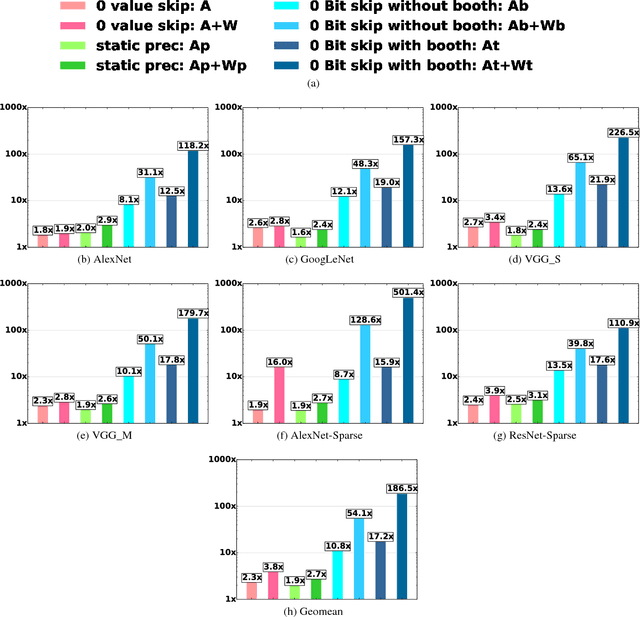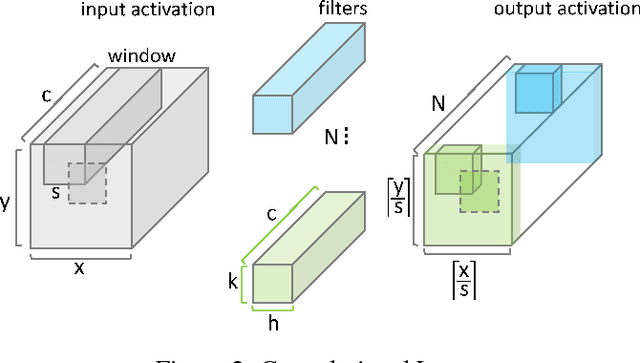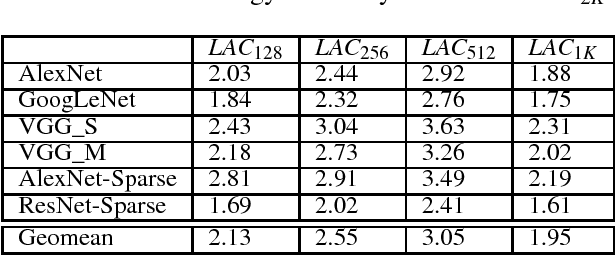Laconic Deep Learning Computing
Paper and Code
May 10, 2018



We motivate a method for transparently identifying ineffectual computations in unmodified Deep Learning models and without affecting accuracy. Specifically, we show that if we decompose multiplications down to the bit level the amount of work performed during inference for image classification models can be consistently reduced by two orders of magnitude. In the best case studied of a sparse variant of AlexNet, this approach can ideally reduce computation work by more than 500x. We present Laconic a hardware accelerator that implements this approach to improve execution time, and energy efficiency for inference with Deep Learning Networks. Laconic judiciously gives up some of the work reduction potential to yield a low-cost, simple, and energy efficient design that outperforms other state-of-the-art accelerators. For example, a Laconic configuration that uses a weight memory interface with just 128 wires outperforms a conventional accelerator with a 2K-wire weight memory interface by 2.3x on average while being 2.13x more energy efficient on average. A Laconic configuration that uses a 1K-wire weight memory interface, outperforms the 2K-wire conventional accelerator by 15.4x and is 1.95x more energy efficient. Laconic does not require but rewards advances in model design such as a reduction in precision, the use of alternate numeric representations that reduce the number of bits that are "1", or an increase in weight or activation sparsity.
 Add to Chrome
Add to Chrome Add to Firefox
Add to Firefox Add to Edge
Add to Edge